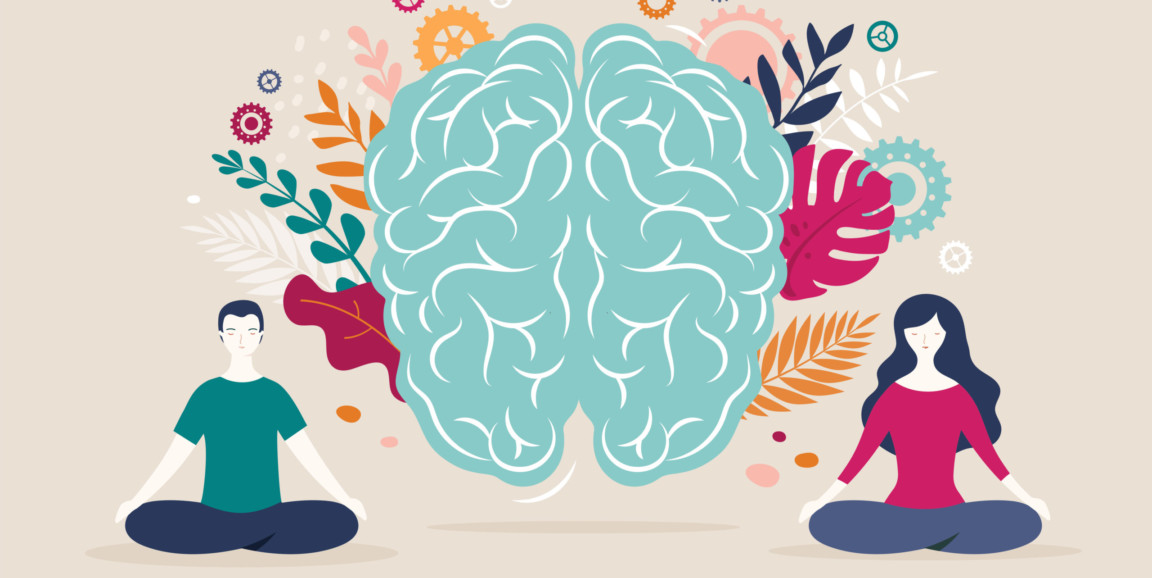Mental health has become a critical aspect of overall well-being, and there is a growing recognition of the importance of prioritizing and maintaining good mental health. Fortunately, there are numerous paths individuals can embark upon to achieve better mental health. This article explores some of the diverse approaches and strategies available for promoting and nurturing mental well-being. From traditional therapeutic methods to alternative practices, self-care techniques, and community support, these pathways offer individuals a range of options to enhance their mental health and lead fulfilling lives.
I. Traditional Therapeutic Approaches :
Psychotherapy: Psychotherapy, such as cognitive-behavioral therapy (CBT), psychodynamic therapy, and interpersonal therapy, offers individuals a safe space to explore their thoughts, emotions, and behaviors. Therapists assist clients in gaining insight, developing coping mechanisms, and improving communication skills to better manage mental health challenges.
Medication: In certain cases, mental health conditions can benefit from pharmacological interventions. Prescribed medication, such as antidepressants, antianxiety drugs, or mood stabilizers, can be an effective component of treatment, often used in conjunction with therapy.
Support Groups: Support groups provide individuals with shared experiences a supportive environment to discuss their challenges, exchange coping strategies, and foster a sense of community. Groups focused on specific mental health conditions, addictions, or life transitions can be particularly beneficial.
II. Alternative and Complementary Approaches :
- Mindfulness and Meditation: Practices such as mindfulness meditation cultivate present-moment awareness, reducing stress and promoting emotional regulation. By focusing on the breath, body sensations, or specific objects, individuals can enhance self-awareness and develop resilience.
- Yoga and Physical Exercise: Engaging in physical exercise, including yoga, has been shown to release endorphins, improve sleep, and alleviate symptoms of depression and anxiety. The combination of movement, breathwork, and meditation in yoga can have a positive impact on mental well-being.
- Art and Music Therapy: Artistic expression through painting, drawing, music, or dance can serve as therapeutic outlets. Creative activities can enable individuals to explore and communicate emotions, reduce stress, and promote self-discovery.
-
III. Self-Care and Lifestyle Strategies :
Sleep Hygiene: Establishing healthy sleep habits, such as maintaining a consistent sleep schedule, creating a calming bedtime routine, and ensuring a comfortable sleep environment, can significantly impact mental health and overall well-being.
Balanced Nutrition: Proper nutrition plays a vital role in mental health. Consuming a balanced diet that includes essential nutrients, such as omega-3 fatty acids, B vitamins, and antioxidants, can support brain function and regulate mood.
Stress Management: Adopting stress management techniques, such as practicing relaxation exercises, engaging in hobbies, setting boundaries, and prioritizing self-care, can help individuals effectively cope with stressors and protect their mental well-being.
IV. Community Support and Connection:
Social Support: Maintaining healthy relationships and social connections is essential for mental health. Engaging with supportive friends, family members, or participating in group activities can provide emotional validation, encouragement, and a sense of belonging.
Volunteer Work: Contributing to a cause or engaging in volunteer work can foster a sense of purpose, self-worth, and social connection. Volunteering not only benefits the community but also enhances one’s mental well-being.
Online Communities: Online platforms and forums focused on mental health provide individuals with an opportunity to connect, share experiences, and seek support from a global community. These communities can offer valuable insights, resources, and virtual support networks.
conclusion:
When it comes to mental health, there is no one-size-fits-all solution. The journey to better mental health involves exploring and adopting a combination of approaches that suit individual needs and preferences. Traditional therapeutic methods, alternative practices, self-care strategies, and community support all contribute to nurturing mental well-being. It is essential to remember that seeking professional help, such as therapy or medication, can provide a solid foundation for addressing mental health challenges. However, embracing complementary approaches and incorporating self-care practices can further enhance overall mental well-being. By being open to the many paths available and tailoring them to their unique circumstances, individuals can embark on a transformative journey towards better mental health, leading to increased resilience, happiness, and fulfillment in life.


